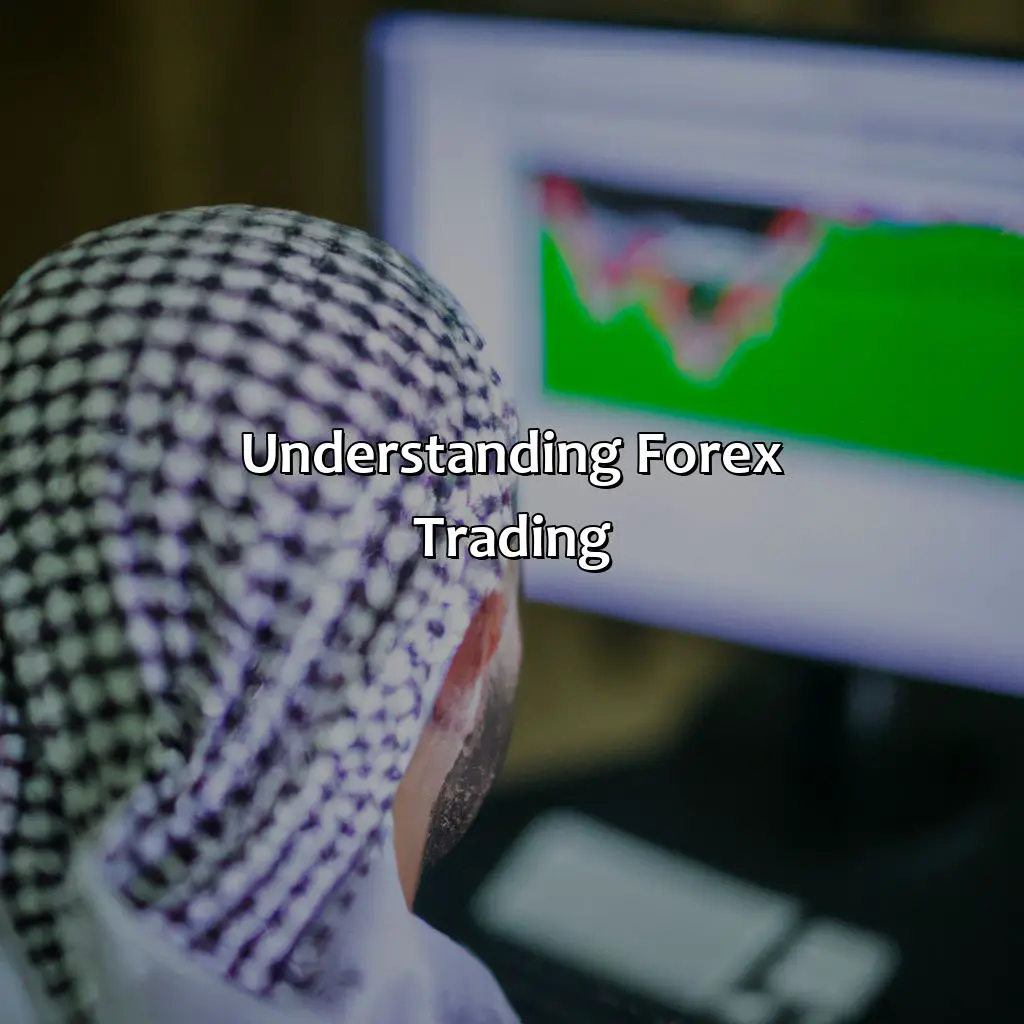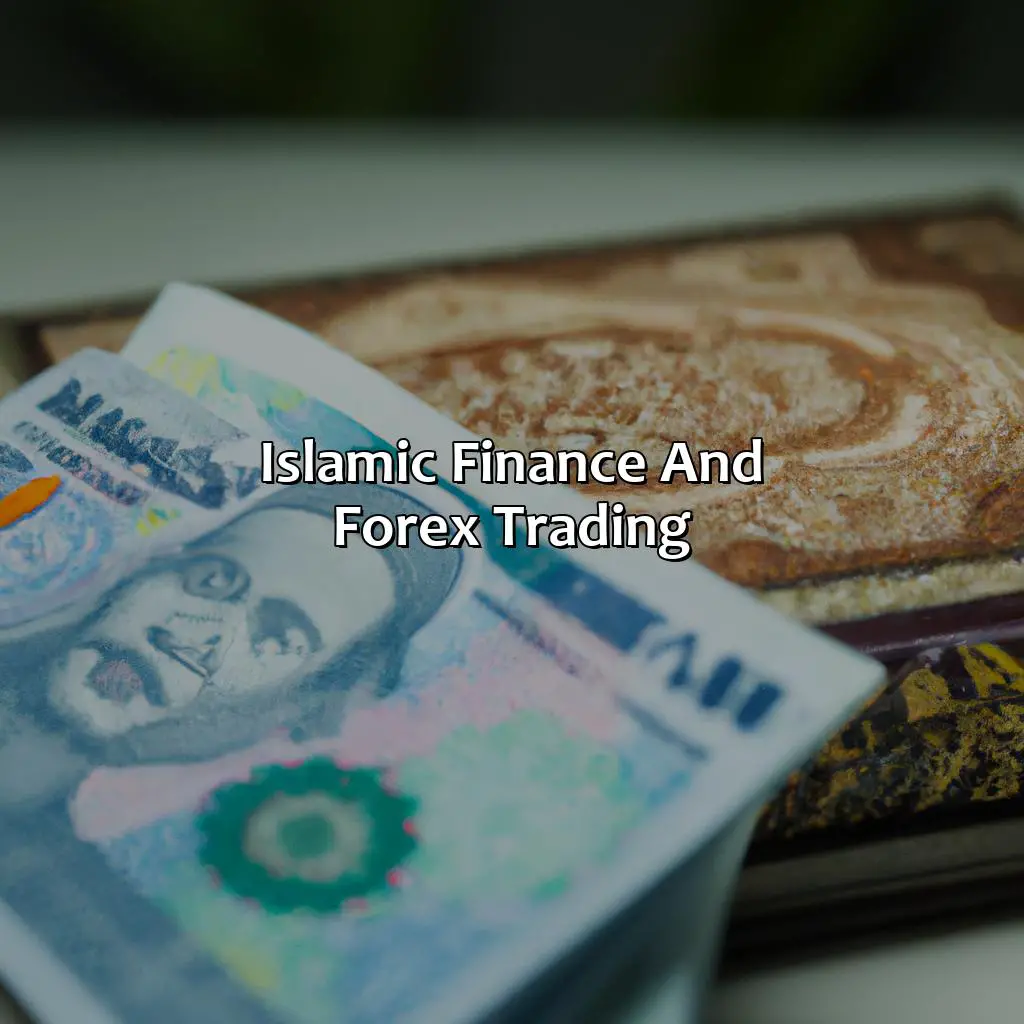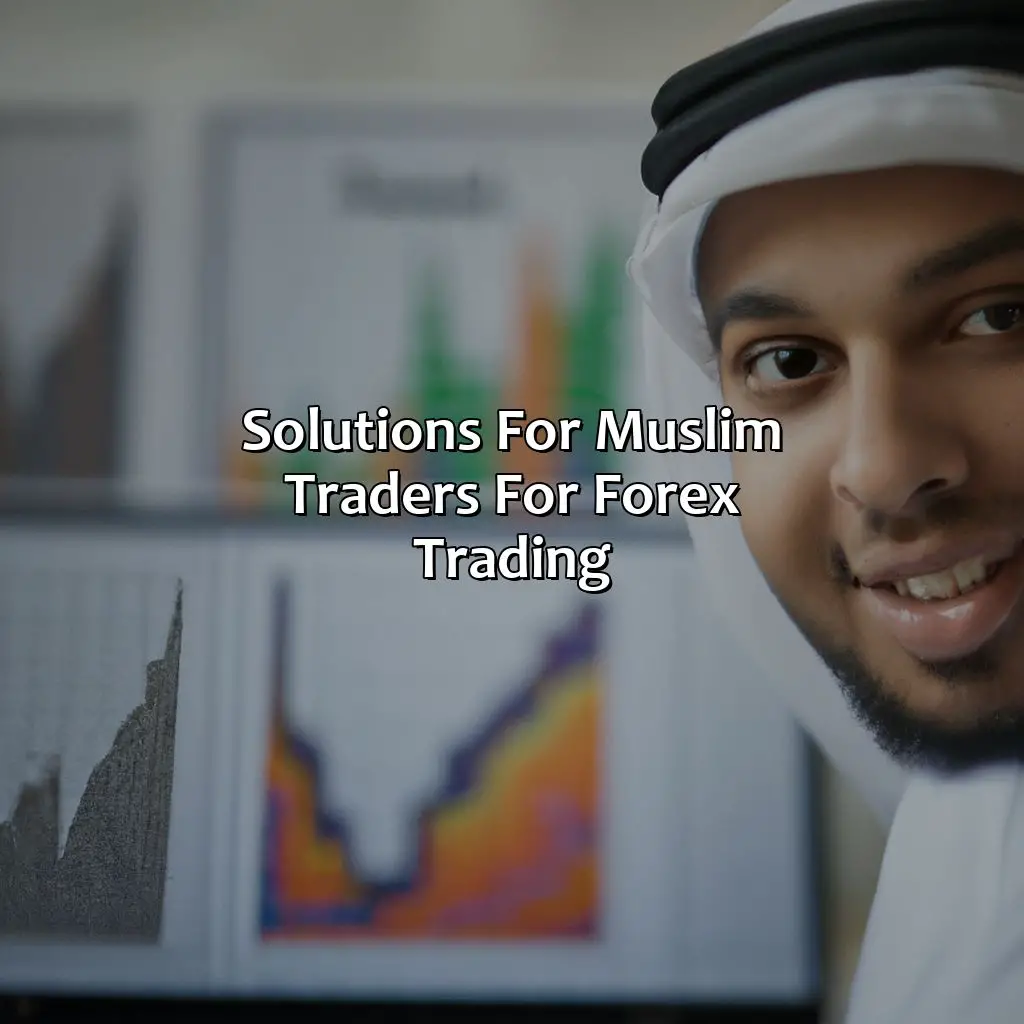
Key Takeaway:
- Forex trading is allowed for Muslims as long as it is Shariah compliant. Islamic finance principles should be followed, such as avoiding Riba and Gharar.
- Islamic forex trading requires the use of a Shariah-compliant account that avoids interest and follows certain principles, such as transparency in business transactions.
- Muslim traders face challenges related to religious constraints and perceptions towards forex trading, but there are solutions available, such as Islamic forex brokers and alternative investment options that are in line with Islamic principles.
Understanding Forex Trading

Photo Credits: forexbrokerreport.com by Patrick Nelson
To comprehend forex trading in connection to Sharia law and Islamic finance, this article investigates the concept of forex trading. To receive a full understanding of forex trading, two sub-sections are included. The first one is ‘What is Forex Trading‘ and the second one is ‘How Forex Trading Works‘. These sub-sections will explain the fundamentals of forex trading and the running of the forex market.
What is Forex Trading?
Forex trading, also known as currency trading, involves buying and selling currencies with the aim of making a profit. The forex market is the largest and most liquid financial market in the world, where currencies are traded 24/7 across global exchanges. In forex trading, traders can make profits by either buying low and selling high or selling high and buying low. The value of currencies fluctuates constantly in response to various economic and geopolitical events, providing opportunities for profit.
Due to its significant potential returns, forex trading has attracted many investors globally. However, it also carries high risks and requires education and experience to succeed. Investors should have a deep understanding of the market dynamics and factors affecting currency values before venturing into this field.
Shariah compliance is essential for Muslim traders who want to participate in forex trading. Riba (interest) and Gharar (uncertainty or speculation) are prohibited in Islamic finance principles, which poses challenges for Muslim traders interested in forex trading. However, there are now several Islamic Forex brokers that offer Shariah-compliant accounts designed specifically for Muslim investors.
Pro Tip: To succeed in forex trading, it is crucial to follow news releases concerning central banks’ decisions concerning interest rates or other monetary policies that may affect currency pairs’ prices.
The forex market may seem like a confusing maze, but understanding forex trading basics can help you navigate through it like a pro.
How Forex Trading Works
The functionality of the forex market may be understood through analyzing the means by which it operates. A trader purchases one currency while selling another simultaneously, in anticipation of profiting from the changes in exchange rate between the bought and sold currency. This practice is conducted through a broker who obtains a commission from every trade facilitated.
As an investment, forex trading basics begin with comprehending the manner in which several macroeconomic factors affect exchange rates. The description of supply-demand economics is simplistically utilized as basic fundamental analysis technique, which involves investigating political news or other external factors that influence the economy of said currency. Additionally, using technical analysis tools are available to traders to identify trends within price charts to predict future direction and opportunities.
It is imperative for new traders to grasp a thorough understanding of Forex Trading mechanics because being uninformed can incur significant losses on their end. Hence Muslim Traders need to seek brokers that align with Shariah Compliance trading standards to avoid any interest-bearing situations.
Don’t miss out on Forex Trading investment opportunities due to religious beliefs! Seek solutions tailored towards Islamic finance compliance such as contacting an Islamic Forex Broker or alternative investing options for your convenience and peace of mind.
Trade Forex the Halal way with Islamic forex brokers and ensure your earnings stay Shariah compliant.
Islamic Finance and Forex Trading

Photo Credits: forexbrokerreport.com by Jeremy Sanchez
To comprehend forex trading in line with Islamic finance, learn about Shariah compliance. This demands sticking to Islamic account forex trading practices. Additionally, evade riba (interest) and gharar (unpredictability) when trading forex. This part explains riba-free forex and no interest forex trading strategies.
Shariah Compliance in Forex Trading
To ensure adherence to Islamic Finance principles, traders must engage in shariah-compliant trading practices. This is particularly relevant for Muslim traders seeking to partake in forex trading without violating their religious beliefs. Forex brokers who provide Islamic Account Forex Trading are equipped with the necessary protocols and processes to enable this kind of trading.
Islamic forex trading operates on swap-free accounts that don’t require traders to pay or receive any interest fees or rollover charges. Instead, brokers charge fixed commission fees, as agreed upon mutually by the trader and broker. Additionally, these accounts ensure that no speculative transactions are carried out, and instead rely on currency trade execution based on real-time market valuations.
Furthermore, these accounts also adhere to the principle of Gharar (excessive risk-taking), which prohibits business activities that involve any level of gambling or uncertainty. As such, Islamic account forex trading ensures compliance with these crucial principles of Islam through its unique financial infrastructure.
With more and more Muslims turning towards forex trading as a viable investment option, it is imperative that they opt for an Islamic account-based structure for their investments. Not only does it comply with their religious beliefs but also ensures peace of mind while capitalizing on the lucrative forex market opportunities available worldwide.
Forex trading without riba? It’s possible, just look for a no interest forex broker.
Riba and Gharar in Forex Trading
Riba-free Forex Trading is essential as per Shariah-compliant trading practices. Forex trading can be considered Haram (forbidden) as it involves Riba (interest) and Gharar (uncertainty). Understanding the compatibility of Forex trading with Islamic finance is crucial, especially for Muslim traders.
| Riba | Gharar |
|---|---|
| Interest-based transactions | Unknown or uncertain market conditions |
| Charging or receiving of interest | Unforeseen future outcomes |
| Prohibits any contracts that involve interest | Taking excessive risk |
There are various ways to ensure riba-free forex trading, such as avoiding overnight positions, selecting swap-free accounts, and working with an Islamic forex broker actively monitoring any violation of Shariah principles. It’s imperative to follow these approaches to prevent Ribawi transaction issues while performing Forex Trading.
Fact: In 2017, Malaysia’s central bank issued licenses for five more Islamic banks and one Takaful (insurance) operator, increasing the Malaysian shariah-compliant financial institutions to 16 banks and nine Takaful operators.
Being a Muslim trader in the forex market can be challenging, but with the right resources and mindset, success is not Haram.
Muslim Traders and Forex Trading

Photo Credits: forexbrokerreport.com by Bradley Roberts
Uncover the views of Muslim traders on forex trading. Explore the ‘Muslim Traders and Forex Trading’ section. In it, there are two subsections: ‘Muslim Traders and Their Perceptions’ and ‘Challenges Faced by Muslim Traders’. Learn how Islamic beliefs shape Muslim thoughts on forex trading. Also, find out the difficulties Muslim traders face due to religious constraints.
Muslim Traders and Their Perceptions
Muslim traders and their understanding of forex trading are an intriguing topic to explore. Through examining Muslim perceptions of forex trading, individuals can learn how Islamic beliefs and forex trading may intersect. Aspects such as transparency, volatility, global reach, and cultural differences all frame the nuanced views of Muslim traders. These factors can contribute to either negative or positive perspectives on financial markets.
Muslim traders’ experiences can be shaped uniquely due to belief systems that emphasize ethical considerations regarding financial activities. Thus, in exploring how Muslim perceptions of forex trading arise, interested people can have a better understanding of Islam’s principles and their implications for forex trading practices.
Pro Tip: Engage with community-led discussions around these nuances to foster inclusive opportunities for Muslims interested in Forex Trading.
Being a Muslim trader in the forex market is like trying to swim upstream while wearing a straightjacket.
Challenges Faced by Muslim Traders
Muslim traders face various difficulties due to the religious constraints of forex trading. The challenges of Muslim traders revolve around adhering to shariah compliance, which includes avoiding riba (interest) and gharar (uncertainty). Additionally, finding an Islamic forex broker and suitable alternative investment options can also be challenging for Muslim traders.
Often, Islamic forex brokers do not have a wide range of trading options available, making it difficult for traders to diversify their portfolios. Moreover, due to limited competition within the market, Islamic brokers may charge higher fees compared to standard brokers. Muslim traders’ perception of forex trading as risky and haram also pose significant psychological issues that challenge the participation levels in the market.
Furthermore, without proper education about forex trading, Muslim traders struggle with navigating through complexities such as interpreting charts and graphs or placing trades correctly. These technical aspects of trading coupled with religious considerations make it challenging for Muslim traders to succeed financially in the long term.
Traders who venture outside traditional paths are few and far between but give hope to others looking for alternatives. One lesser-known alternative that many invest in is real estate crowdfunding. Others find success in socially responsible mutual funds aligned with shariah principles.
In summary, challenges faced by Muslim traders include religious constraints related to shariah law, difficulty in finding suitable Islamic forex brokers and alternative investment options. However, by upskilling themselves or seeking out less conventional means like social responsible investments or real estate crowdfunding platforms – they show promise in scaling newer heights of financial success.
Step aside, conventional forex brokers – Muslim traders have officially entered the chat with the rise of Islamic forex brokers and alternative investment options.
Solutions for Muslim Traders for Forex Trading

Photo Credits: forexbrokerreport.com by Matthew Robinson
Muslim traders need compliant solutions for forex trading. This section looks into Islamic forex brokers and alternative investment options for Muslim traders. Sub-sections will discuss Islamic forex brokers with Muslim-friendly forex trading. Additionally, there are alternative investments which abide by zakat guidelines.
Islamic Forex Brokers
Forex brokers that offer services aligned with the principles of Islamic finance are known as Muslim-friendly or Islamic Forex brokers. These brokers cater to the needs of Muslim traders who abide by Shariah law, which prohibits Riba (interest) and Gharar (uncertainty). Islamic Forex brokers ensure compliance with these laws by providing swap-free accounts where instead of interest, traders pay a commission on positions held overnight.
In addition to offering swap-free accounts, some Islamic Forex brokers also provide Halal investment options that comply with Shariah law. This includes trading in halal stocks, commodities, and mutual funds. Muslim traders can opt for such investment options, keeping in mind the factors like risk management strategies and asset allocation methods.
It’s worth noting that not all Forex brokers claiming to be ‘Islamic’ may be truly Shariah compliant. Therefore it is essential to conduct thorough research before selecting a broker. Traders can use online resources, consult with other Muslim traders and industry experts to find reputed and reliable Islamic Forex brokers.
According to a report published by IFN magazine in 2019, there has been significant growth in demand for Shariah-compliant investment products across the globe due to increased awareness among Muslims regarding ethical investing practices. As a result, more Islamic Forex Brokerage firms have started emerging over recent years.
From halal stocks to Islamic bonds, explore the world of Islamic investment opportunities beyond zakat and forex trading.
Alternative Investment Options for Muslim Traders
There are several options available for Muslim traders looking to invest their money in a halal way. Some of the popular Islamic investment opportunities include real estate, gold, and Islamic mutual funds. Here are some more options:
- Sukuk: Islamic bonds that comply with Shariah law and provide regular returns.
- Takaful: Shariah-compliant insurance policies that offer protection against financial loss.
- Musharaka: Joint venture partnership where profits and losses are divided amongst the partners.
- Waqf: Endowment or charitable trust that can be established to support a cause or initiative.
Islamic forex brokers also provide a viable option for Muslim traders looking to adhere to Shariah principles in their trading activities. These brokers operate on an interest-free basis and do not charge rollover fees for overnight positions, ensuring compliance with riba (interest) prohibition.
It should be noted that Zakat (charity giving) is an important aspect of Islamic finance, and should be paid on earnings from any investments including forex trading.
Five Facts About Can Muslims Trade Forex:
- ✅ Forex trading is allowed in Islam as long as it follows certain principles such as avoiding interest-based transactions. (Source: Asharq Al-Awsat)
- ✅ Muslims can trade forex without violating Islamic law by using Islamic forex accounts that comply with Shariah law. (Source: FX Empire)
- ✅ There are several reputable forex brokers that offer Islamic accounts, such as XM, FXTM, and IC Markets. (Source: DailyFX)
- ✅ Islamic forex accounts typically have no swap or rollover fees and offer transparent pricing structures. (Source: Investopedia)
- ✅ Forex trading can be a profitable venture for Muslims, but it requires knowledge and discipline to manage risk effectively. (Source: The Balance)
FAQs about Can Muslims Trade Forex?
Can Muslims trade forex?
Yes, Muslims can trade forex, but it must be done according to Islamic principles and guidelines.
What does the Quran say about forex trading?
The Quran forbids usury (riba) and speculative trading. Therefore, Muslims must avoid any forms of forex trading that involve interest payments or unethical business practices.
What are the trading guidelines for Muslims in forex trading?
Trading guidelines for Muslims involve avoiding speculative trading and investing in businesses that follow ethical practices. Additionally, they must avoid usury and unpredictable risks in their trade.
Is hedging allowed in Islamic forex trading?
Islamic forex trading allows the use of hedging to manage currency risks. Muslims can opt for options, forward contracts, or futures contracts to manage currency risk.
Can Muslims trade forex on margin?
Islamic forex trading does not allow trading on margin. Muslims should always trade with their own funds and avoid borrowing any funds or paying interest to brokers.
What is an Islamic Forex Account and where can I find it?
An Islamic Forex Account is designed for Muslims who follow the Islamic principles. It is free of interest and swaps that can come in the way of Islamic Trading. The best platform to find an Islamic Account is Admiral Markets.

